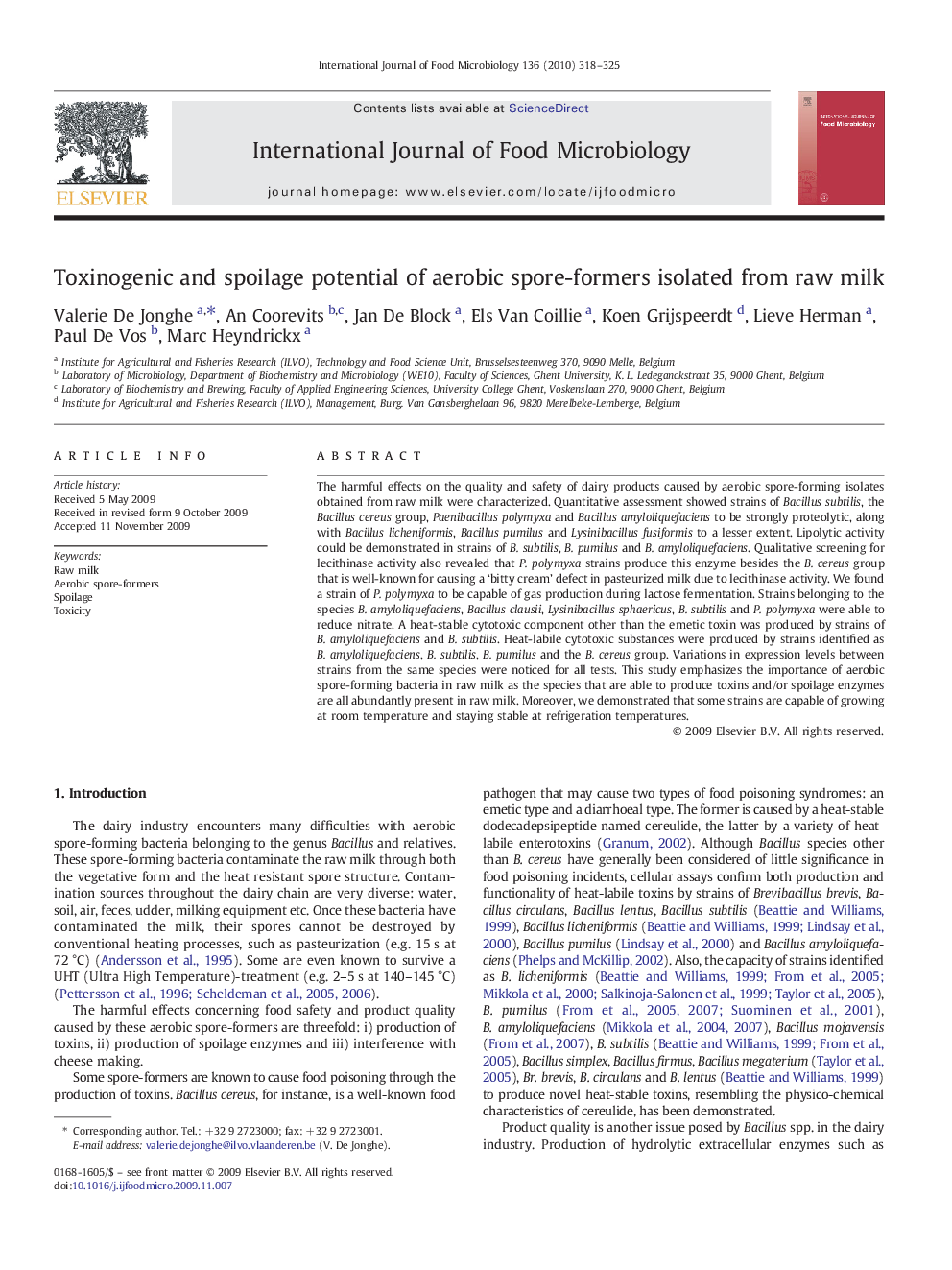| Article ID | Journal | Published Year | Pages | File Type |
|---|---|---|---|---|
| 4368423 | International Journal of Food Microbiology | 2010 | 8 Pages |
The harmful effects on the quality and safety of dairy products caused by aerobic spore-forming isolates obtained from raw milk were characterized. Quantitative assessment showed strains of Bacillus subtilis, the Bacillus cereus group, Paenibacillus polymyxa and Bacillus amyloliquefaciens to be strongly proteolytic, along with Bacillus licheniformis, Bacillus pumilus and Lysinibacillus fusiformis to a lesser extent. Lipolytic activity could be demonstrated in strains of B. subtilis, B. pumilus and B. amyloliquefaciens. Qualitative screening for lecithinase activity also revealed that P. polymyxa strains produce this enzyme besides the B. cereus group that is well-known for causing a ‘bitty cream’ defect in pasteurized milk due to lecithinase activity. We found a strain of P. polymyxa to be capable of gas production during lactose fermentation. Strains belonging to the species B. amyloliquefaciens, Bacillus clausii, Lysinibacillus sphaericus, B. subtilis and P. polymyxa were able to reduce nitrate. A heat-stable cytotoxic component other than the emetic toxin was produced by strains of B. amyloliquefaciens and B. subtilis. Heat-labile cytotoxic substances were produced by strains identified as B. amyloliquefaciens, B. subtilis, B. pumilus and the B. cereus group. Variations in expression levels between strains from the same species were noticed for all tests. This study emphasizes the importance of aerobic spore-forming bacteria in raw milk as the species that are able to produce toxins and/or spoilage enzymes are all abundantly present in raw milk. Moreover, we demonstrated that some strains are capable of growing at room temperature and staying stable at refrigeration temperatures.
